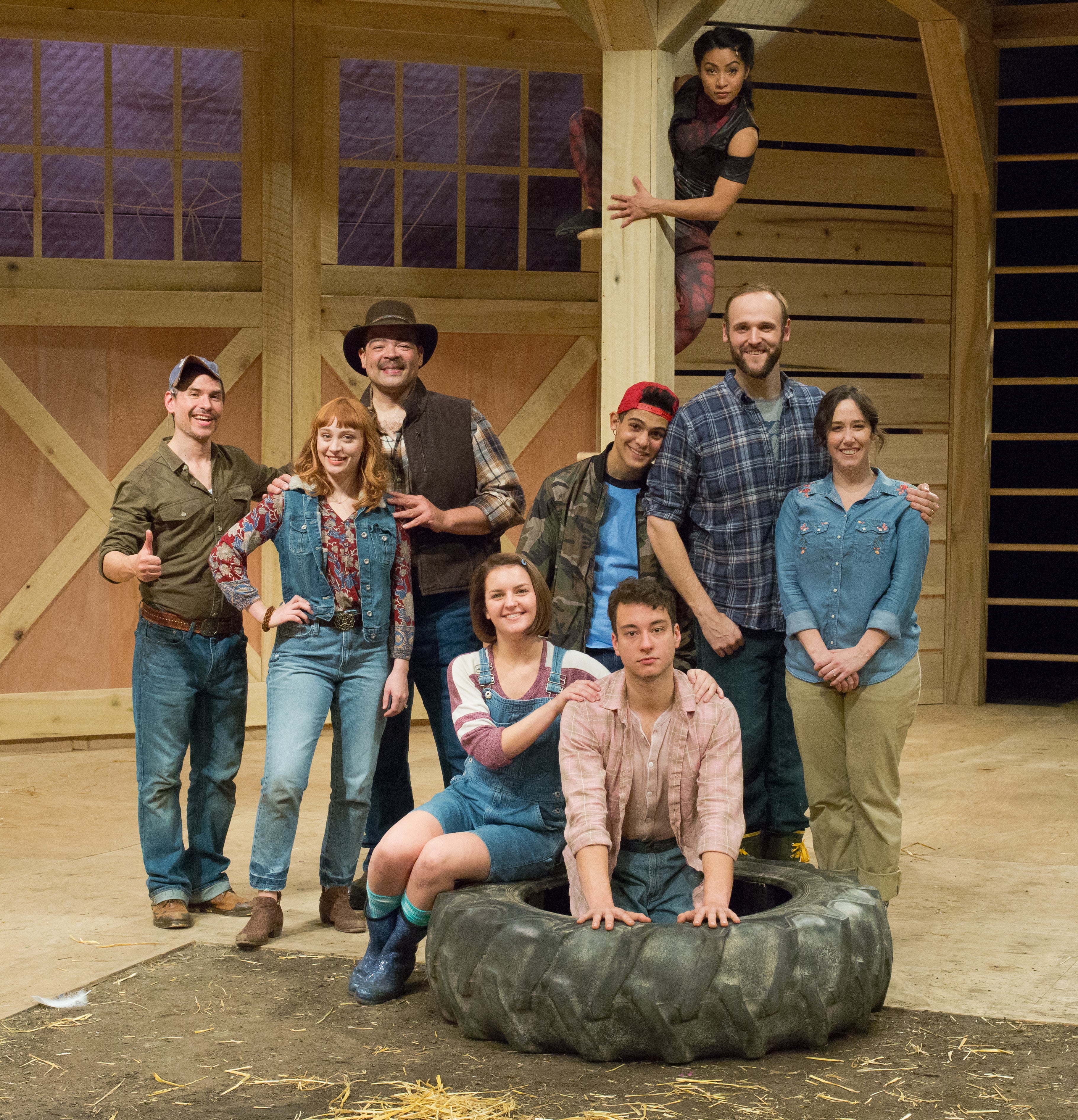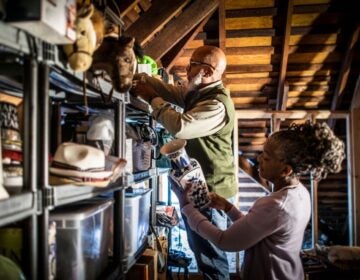Enduring lessons from Arden’s ‘Charlotte’s Web’
After I read E. B. White’s children’s classic Charlotte’s Web when I was in third grade, I adamantly decided that I would be a vegetarian.

Arden Theatre's cast of "Charlotte's Web." (Photo Courtesy/Arden Theatre)
After I read E. B. White’s children’s classic Charlotte’s Web when I was in third grade, I adamantly decided that I would be a vegetarian. I was so taken by the character of Wilbur, the sweet, lovable, innocent pig who escapes slaughter because of the brave, creative spider Charlotte, that I couldn’t imagine eating an animal again. That decision lasted about a week … though I did become a full-fledged vegetarian later in life. But what stayed with me back then — and has deeply touched generations of children since Charlotte’s Web was first released in 1952 — is the powerful story of friendship between Wilbur and Charlotte.

Here in Philadelphia, we are so fortunate to have the Arden Theatre Company’s children’s theater productions that bring great children’s stories to life through dynamic live performances by some of Philly’s best professional theater artists. Right now, you and your kids can enjoy a truly memorable interpretation of “Charlotte’s Web“, onstage at the Arden through February 3. Director Whit MacLaughlin brings the story to life through simple, evocative staging. The amazing actors who play animals do so without wearing animal suits — instead, their physicality suggests the animals whom they play. Charlotte, played by circus arts performer Anaya Strutz, is especially magical — she enters the barn via a cirque-like silk aerial routine and moves up and down the beams of the barn with incredible grace.
When I saw the production, children — from preschoolers to tweens and even some teens — were captivated, as were the adults who brought them to the show. The production is a great occasion to re-read E. B. White’s book if it’s been a while — or read it out loud with your kids. A few of the important messages that I remember from Charlotte’s Web that the Arden’s production brings beautifully to life include:
There’s magic and wonder all around us: We know that for kids growing up in the “igeneration,” it’s important to unplug from screens and notice the natural beauty that’s around us. Charlotte creates truly unique webs—but how often do we stop to notice the beautiful pattern of a simple spider web? After watching the play, invite your kids to slow down and notice the natural world. Can they find a Charlotte?
It’s natural to feel nervous in new places: One of the most relatable scenes in the play is when Wilbur is taken to his new home on the Zuckerman’s farm. He is away from his friend Fern and feels lonely and scared until Charlotte befriends him. Everyone one of us has felt nervous about being at a new school, camp or event. Invite children to reflect about how Wilbur felt — they may want to share about their own experiences being the new kid.
Be open to all kinds of friends: When Wilbur comes to the farm, he’s used to being with his friend Fern — and now he needs to adjust to a whole bunch of new companions including Templeton, the rat, a goose and a gander, a sheep and a lamb and of course, Charlotte the spider. Wilbur is a good model for our kids about being open to getting to know different kinds of friends … if he had stayed scared of Charlotte, he would have missed out on meeting his best friend!
We have the capacity to change for the better: One of my favorite characters in the Arden’s production is Templeton, played with humor and zest by J. Hernandez. For most of the play, Templeton only cares about himself — getting enough scraps to eat. But when Wilbur asks him to save Charlotte’s egg sac, he performs his first selfless act. Talk with your kids about the power of Templeton’s transformation — and how we can all learn to become more thoughtful and caring as we grow.
Those we love live on: “Charlotte’s Web” ends with sadness when Charlotte grows weak and dies. In the theater when I saw the play, many kids and adults shed tears at this moment. But when Wilbur meets Charlotte’s children, some of whom choose to stay in the barn with him, we understand that Charlotte lives on. The play is an opportunity to introduce the idea that when people we love die, they live on in our memories of them and through the love that they’ve given us — which lives on.
I hope you have the opportunity to experience this wonderful production with your family!
WHYY is your source for fact-based, in-depth journalism and information. As a nonprofit organization, we rely on financial support from readers like you. Please give today.




